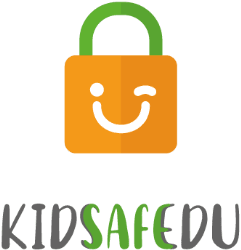FAQ
What is online bullying?
Online bullying happens via pc, smart phones, gaming console or tablets in the online sphere and mostly on social media. It could mean sending hurtful or threatening text messages and e-emails or blogging similar content, posting humiliating photos, excluding people from chat groups, sharing certain content on social media or identity theft which means creating a fake profile to humiliate or mock someone on social media. Online bullying bears serious consequences, it is not limited to school-time, it is mostly public, and the offender cannot see the effects of his deed on the victim.
How can I recognise the signs of online bullying on my child?
Signs of online bullying can be the following:
Psychological signs:
- tiredness,
- dejectedness,
- nervousness,
- anxiety,
- sleep disorders,
- changes in eating habits.
Bodily symptoms:
- headache,
- stomachache.
Behavioural symptoms:
- the child guards his phone, laptop or tablet,
- or spends more time than usual on them,
- the child becomes withdrawn,
- the child is acting aggressively at home.
Symptoms related to school:
- worsened school performance,
- less willing to talk about their day, and becomes defencing when asked,
- truancy, the child is making up excuses or states that they are unwell,
- the child speaks less about their friends and meets them less.
These symptoms may also be caused by something else, so please do not draw premature conclusions!
What can a parent do to get children to open up and talk about the bullying?
It takes a lot of courage for a child to admit that he or she is bullied. Most bullied children do not tell their parents about the bullying because they fear their parents will tell them off or overreact, making the situation even worse for him or her. If your child tells you that he or she has been bullied, first of all stay calm. Your child needs your support to get out of this situation, don’t blame or punish him or her. Talk calmy and encouragingly. Thank your child for telling you his or her feelings and assure him or her, that things will get better, and that you will always be there for him or her and that he or she can talk to you openly about his or her problems. Assure your child, that it is not his or her fault that he or she was bullied. An open and intimate relationship helps your child to feel enough strength and confidence to share his or her worries with you. Ask your child, what he or she thinks can be done to stop the bullying and determine further steps together. Discuss the pros and cons of these steps and let your child decide what would be acceptable for him or her.
What can your child do?
He or she can step out from the situation and leave the bully. He or she can ask the bully to stop (for example: I don’t like it, when you call me that! Please, don’t call me that again!) or they can send a message, where they ask the bully to stop the abuse. He or she can ask one of their friends to stop the bully.
What can you as a parent do?
You can call school’s attention to the problem and ask them to pay increased attention to your child. You can formally inform a teacher about the bullying or submit a written complaint to the form teacher. It may be useful to make an action plan with your child about the steps you want to take to address the bullying and to improve the situation.
Where to ask for help?
www.ldi.sk
www.ipcko.sk
www.hintalovon.hu
www.yelon.hu
www.minoritykids.sk
